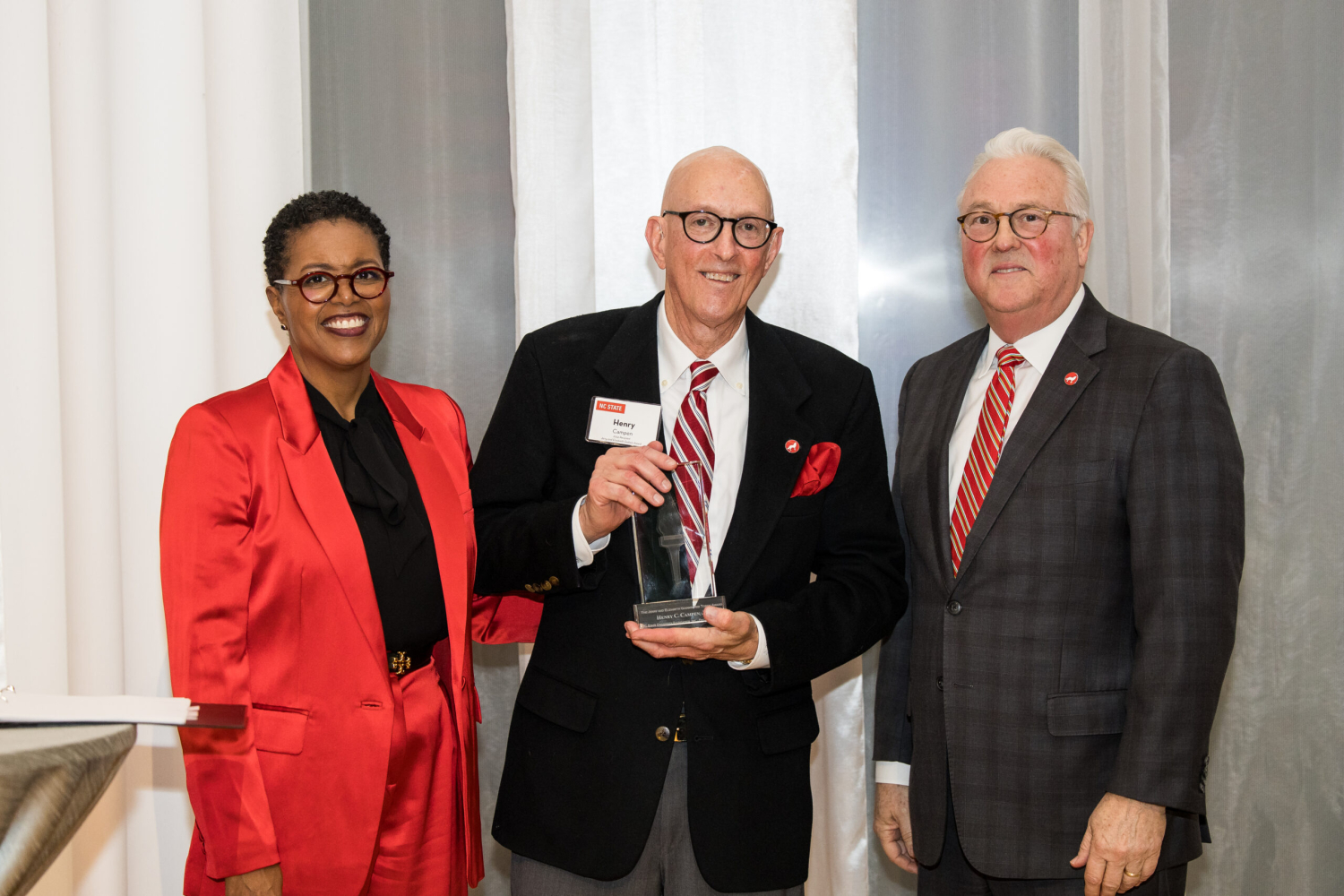American Accounting Association Honors Mark Beasley for Research Contributions
The Distinguished Contributions to Accounting Literature Award reflects the uniqueness and magnitude of contribution to accounting education, practice and/or future accounting research, among other attributes. Research considered for this award must have been published between five and 15 years prior to the award.
Beasley received the award for his research regarding the relationship between board of director composition and financial statement fraud, published in The Accounting Review in 1996. The paper had previously received the 1995 AAA Competitive Manuscript Award.
“At the time, I was looking at fraud cases from the 1980s, when boards were less regulated by the New York Stock Exchange and the Securities and Exchange Commission,” Beasley said. In his study, he found that boards that engaged in fraud had more internal members than those that did not.
Fraud financial reporting has continued to be a key focus of Beasley’s research. In 1999, he was one of the researchers analyzing SEC fraud investigations involving financial statements of U.S. public companies.
That study examined approximately 200 financial fraud cases and offers insights for improving financial reporting. The results of the study have influenced NYSE and NASDAQ listing requirements, as well as SEC disclosure rules, for smaller public companies. The study has been cited in several SEC publications, including Staff Accounting Bulletin No. 101, Revenue Recognition in Financial Statements, Final Rule: Audit Committee Disclosure, and Final Rule: Revision of the Commission’s Auditor Independence Requirements, as well as in the Report and Recommendations of the POB Panel on Audit Effectiveness and The Role of the Board of Directors in Enron’s Collapse, by the Permanent Subcommittee on Investigations of the Committee on
Government Affairs, United States Senate.
In May 2010, a monograph that he co-authored on “Fraudulent Financial Reporting: 1998-2007, An Analysis of U.S. Public Companies,” was published by the Committee of Sponsoring Organizations of the Treadway Commission (COSO). Co-authors are Joe Carcello, Dana Hermanson and Terry Neal.
In the COSO-funded study, the researchers analyzed the 347 financial reporting fraud cases investigated by the SEC between 1998 and 2007. Prior to publication of the monograph, Beasley gave presentations about the findings to the Chief Accountant of the SEC, the Public Company Accounting Oversight Board, the Center on Audit Quality, and the National Association of Corporate Director’s chief executive officer and chief operating officer.
“There were a lot of changes in the late 1990s and early 2000, new regulations to strengthen boards,” Beasley said. “Now, in my study of fraud versus no fraud boards, the differences that were seen in the first study seem to have been regulated away.” Beasley now is looking at new diagnostics related to how boards operate, including better understanding of board of directors behavioral dynamics. “This is where we are in 2010,” he said.


